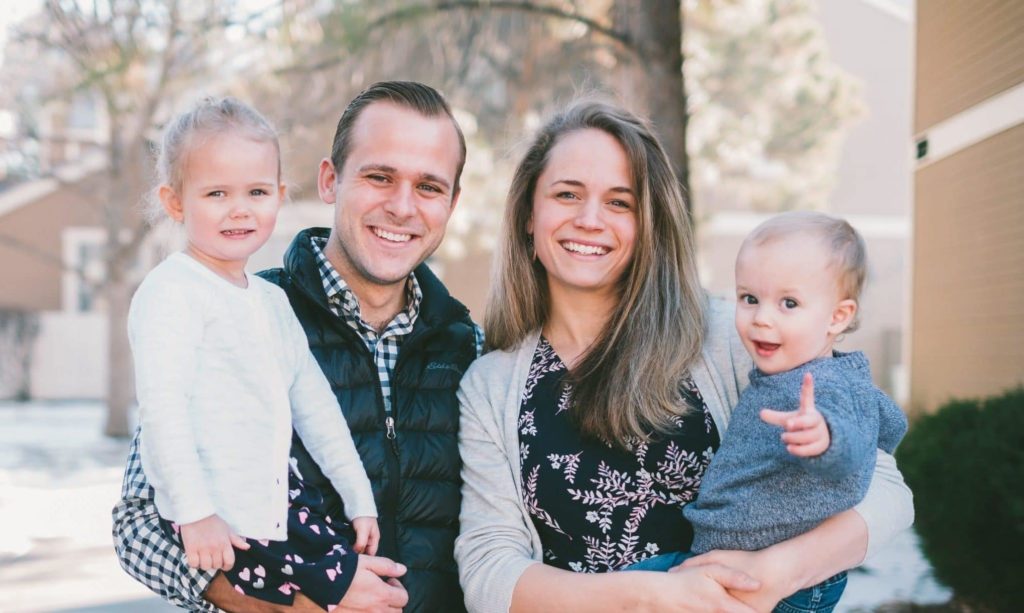There are plenty of twists, turns and bumps on the path to holiness. We can’t go it alone. But through the guidance of Christ, the saints, our communities, family, friends and other Catholics, we can help each other stay on track and grow as disciples. In our Pursuing Holiness Q&A series, we ask Catholics of all ages and backgrounds to answer your questions about faith and discipleship.
Here, Tim and Maggie Glemkowski of Denver, Colorado bring you insights on discipleship, faith, parenting, marriage and perseverance. Tim and Maggie have two kids, ages three and one. Maggie is a nurse with a heart for mission work and Tim founded L’Alto Catholic Institute, a national apostolate that works with parishes to help form disciples. As a family, they love to travel and take hikes in the mountains.
Q1: What’s the best way to evangelize without coming across as a jerk?
Maggie: Always lead with a relationship. Get to know the other person, ask questions and listen. Even in tough conversations, by validating the other and being compassionate to their experience, you can disagree with lifestyle or moral beliefs without coming across as a jerk. Each person’s story is so unique, and taking time to understand what they are ready for in terms of hearing the Gospel is important — maybe a dialogue in which you help the other understand specific teachings of the Church is what is needed in a given situation, and perhaps in another what is called for is simply to be kind and consistent. Invest in the person.
As a nurse, I have had the opportunity to encounter people in all walks of life. With coworkers, I’ve been able to build relationships that allow for deeper conversations around my decision to follow Church teaching (for example, not living with Tim before we got married was a topic I got a lot of questions about!). Often with patients, though, if the topic turns to questions about religion, I’ve found it enough to let the person know I’m sorry for any hurt they have received related to the topic, and to share that I believe the Lord loves them and wants their good.
Q2: How do you consistently bring your family together around prayer and the sacraments?
Tim: Maggie and I recently had some in-depth conversations on this very topic! We both grew up in traditional Catholic homes, with a primary emphasis on the traditional Catholic devotional life for family prayer. While we both very much value each of those aspects of faith, we also felt called to teach our kids how to talk to Jesus from the heart.
Maggie: A couple of months ago we started to pray as a family for ten minutes each evening, asking Christ to come into our hearts, and just putting before Him our intentions and thanksgivings for the day, in a way that isn’t overly structured or thought-out. We just share our hearts out loud with our Father.
Tim: Adding this kind of prayer into our family routine has allowed for the faith to be a natural part of our life; even though our daughter is only three, we’ve seen a difference in the attention she pays at mass, the questions she asks about God, etc.




